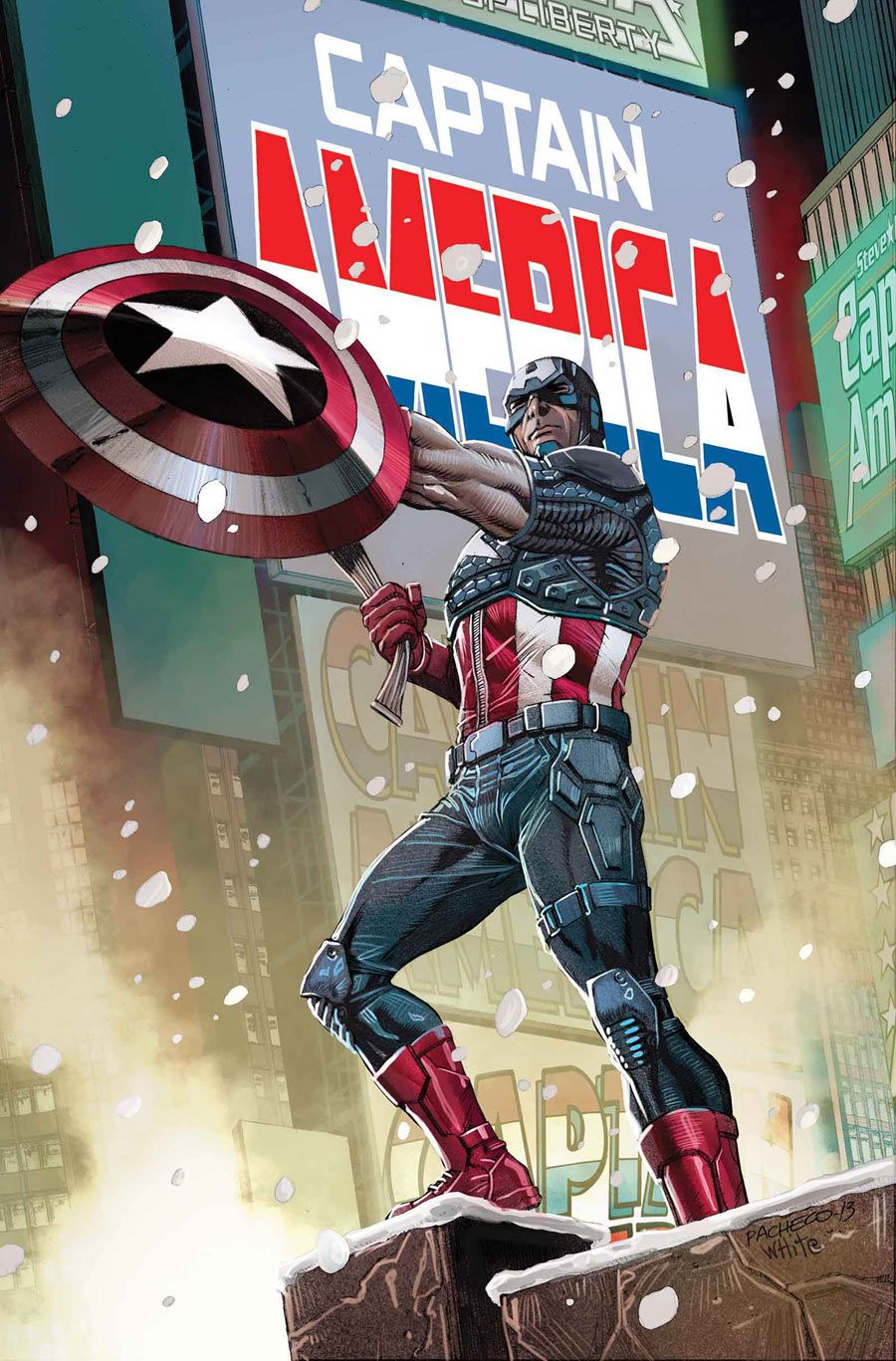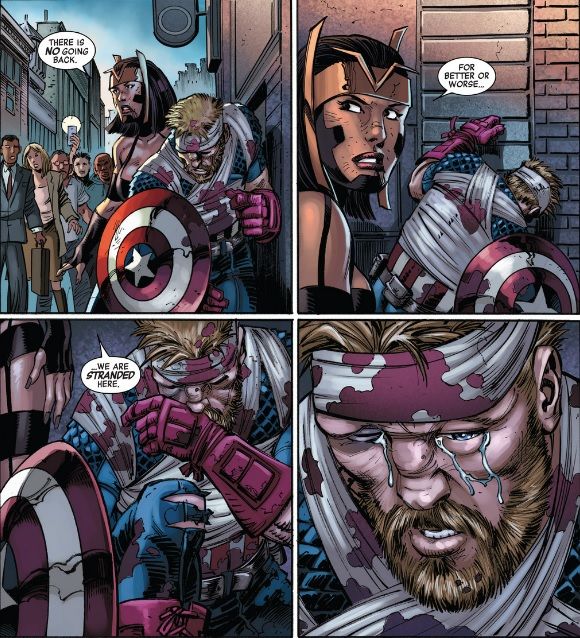Everyone needs a little reinvention now and then. It's human nature to take a look at ourselves and try on a different hat to see if it changes anything. Halloween, cosplay, even just a vacation to another place can be a way to escape the person we are now for the person we could be. Sometimes, the reinvention sticks; after all, none of us is who we were in high school. Sometimes it's a terrible idea that we can pull ourselves out of, like a bad haircut. Either way, who we are remains essential while the trappings can change for a fresh perspective.
Comic characters need the same thing, much to our chagrin. Some of these heroes have been around for 60 or 70 years, so obviously they can't be the same people they were in World War II. There have been cultural shifts that practically demand characters change to keep up with the times and standards; we just don't call characters "Lass" or "Lad" anymore, and Sue Storm's early Invisible Girl years can be embarrassingly sexist. Comic book characters have to retain their audience, if not attract a new one every generation, and a new costume can go a long way in creating a water mark for when fans started reading a particular title. Most of all, creative teams demand these changes as no one wants to write the same character over and over, year after year, without a chance to make their mark on the hero's legend. And much like a bad haircut, sometimes these changes don't go over very well with fans; this still does not change the character at heart.
It can be even more difficult when a comic book character is more than a hero, but a symbol of a country. Rick Remender and John Romita Jr. have brought us 10 issues of a new chapter in Captain America's life and there has been so much change it might be hard to swallow. Because Ed Brubaker and Steve Epting were so wildly successful with their reinvention eight years ago, we're having a hard time letting go of what was working for something new and decidedly different. That doesn't mean it's a bad haircut to be suffered through; if anything, a reinvention can help fans look at a beloved hero in a new way, just another facet of their history and character.
WARNING: We'll be talking about the Marvel NOW! run of Captain America and, mostly spoilerly, Captain America #10 where a bunch of stuff happens. Grab your copies and read along!
Remender looks at Captain America in a way that, at heart, isn't that new at all. Since he pulled Steve Rogers into another dimension, he's worked on developing very different tests for Cap that aren't the political thrillers we've come to know and love since 2005. Still, the character and his essential traits and conflicts are still there, just as they were under Brubaker's pen; they're just being shown in a different landscape. By taking him out of the Marvel Universe and into Dimension X, we're seeing Steve Rogers in a strange morality sandbox where anything is possible. Wide swaths of subjugated aliens? Sure! Infinite cloning vats run by a madman? Why not? Some sort of cruel apocalyptic landscape to suffer and struggle through? It all adds to the sense of isolation that hones in on Cap's strengths and weaknesses as if he was under a microscope.
Remender is sort of kicking the tires on his new series, so to speak, putting Captain America under extreme pressure by stripping him of everything but his moral core and never-say-die attitude. No Avengers to rally, no resources to gather or intelligence to rely on, just a man at his core beliefs. Very aptly, Remender's "Captain America" deals with Death Following Dimension Z Escape - noted with CBR that Steve Rogers' story shouldn't start with Hitler and the War, but the foundations that made his ascension to Super-Soldier status possible.
That helps unearth and really refocuses what drives this guy. It shows how big a part of the American dream he actually is. One generation later, the son of immigrants is the standard for their new nation. That's pretty wonderful, and I really wanted to draw that out and refocus on it. Because that to me is the character, an embodiment of the American dream.
In Dimension X, Steve Rogers got a taste of a life he didn't know he wanted only to have it ripped away from him. The very notion of compassion was challenged as Zola dramatically debated it with his children and Captain America tried to instill the virtue in the young and the downtrodden. Family was brought up in a way that I don't think has ever been tested for a man most likely brought up to strive for such; after all, post-World War II the American Dream was considered a family, kids and a house in the suburbs. Dimension X was a microscope right into the heart of Steve Rogers, less the symbol of America and more the man at its current core. Obviously, there is no story without strife and all of these things that Captain America has gotten a taste for are cruelly ripped away from him. Ian, the boy he raised as his own and passed on his values to, is corrupted and killed. Sharon Carter, the woman who had been to his rescue through his own death, rebirth and beyond, puts down Zola at the possible cost of her own life. (Brief side note: if you actually believe Sharon Carter is Dead dead, I have a bridge in Brooklyn I'd like to sell you; if anything, this 'death' leaves her some room for reinvention as well) As he escapes Dimension X, Rick Remender's test of Cap's character continues.
I always consider solo books different worlds from the team titles and guest star spots in other books. One, this saves my brain the impossible task of trying to read everything to keep anything straight and two, it makes the solo titles all the more precious. In Captain America, we can take the time to really study Steve Rogers without and without of his great heroics. We can hone in with that microscope and find out what makes him tick without the contamination of event book theatrics or other characters vying for the spotlight. Remender's take on the Sentinel of Liberty might differ wildly from what came before and, confusingly enough, what's going on elsewhere, but that doesn't make any of those interpretations wrong or more correct than the others. It just makes them another state in a larger country.



